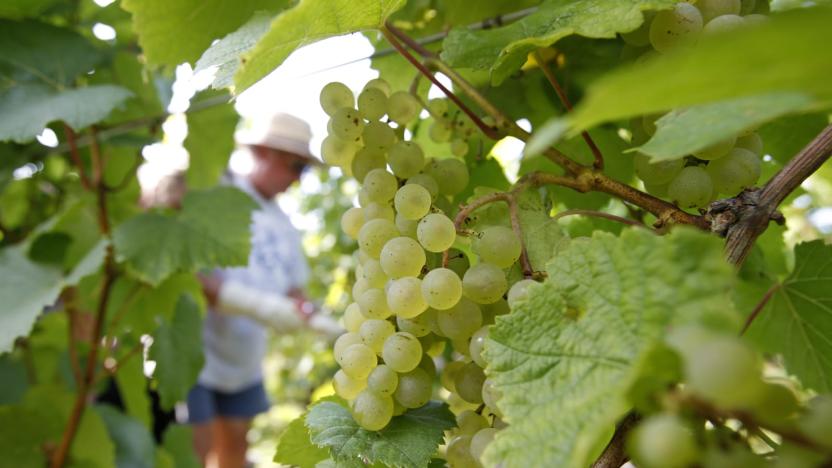grape
Latest

Mixed-gene French grapes may lead to cheaper, safer wine
French wineries have to use a lot of pesticide to keep their grapes healthy, and that's both expensive and costly -- a problem when some countries don't have those problems. The country might just have a solution, though. Researchers at France's Institute of Agronomical Research (INRA) recently received permission to grow four grape varieties that are genetically resistant to mildew rot, eliminating much of the need for pesticides. Where a winery typically needs to spray pesticides about 15 times a year, the INRA varieties may only need one or two.

Mysterious Sam's Club listing for 'Midnight Purple' 3DS surfaces
Given that purple plastic housings were as iconic to the Game Boy Color and Game Boy Advance as many of the games that made them so wildly successful, it's always struck us as odd that Nintendo's subsequent handhelds haven't followed suit. Sure, we have Pearl Pink and some gorgeous limited edition models, but what about that classic Grape, or Atomic Purple?Someone at Nintendo may just share our sentiment, as a listing for a "Midnight Purple" 3DS has been discovered on Sam's Club. The page lists the model just below market value at $168.58, although no other information is given or implied, nor are any pictures available for legit-ness verification. Obviously no official announcement has been made by Nintendo, but we've got our collective ears to the ground and will update with any information that arrises.[Thanks, Andrew!]

Slime molds could hold key to new kinds of intelligence, help Statue of Liberty walk
See that yellow amoeboid slime mold? It's up to something. A team of Japanese scientists at Future University Hakodate led by professor Toshiyuki Nakagaki has found evidence that physarum polycephalum -- or grape-cluster slime -- are capable of navigating mazes and can organize their cells to find the most direct route. Nakagaki and others believe this could be the key to designing bio-computers capable of solving complex problems. According to Nakagaki, the slime's cells appear to have a kind of information-processing ability that allows them to "optimize" the route along which the mold grows to reach food while avoiding stresses -- like light -- that may damage them. Over at Kyushu University, researcher Atsushi Tero told the AFP news agency: "Computers are not so good at analysing the best routes that connect many base points because the volume of calculations becomes too large for them. But slime molds, without calculating all the possible options, can flow over areas in an impromptu manner and gradually find the best routes." Tero and other researchers have expressed hope that slime mold networks could be used in future designs of new transportation systems, electric transmission lines and understanding the human nervous system. Just remember, if you're going to coat the interior of the Statue of Liberty with some pink slime you found in the sewer, make sure you play some upbeat music to go along with it. It's just a good idea in the long run.


